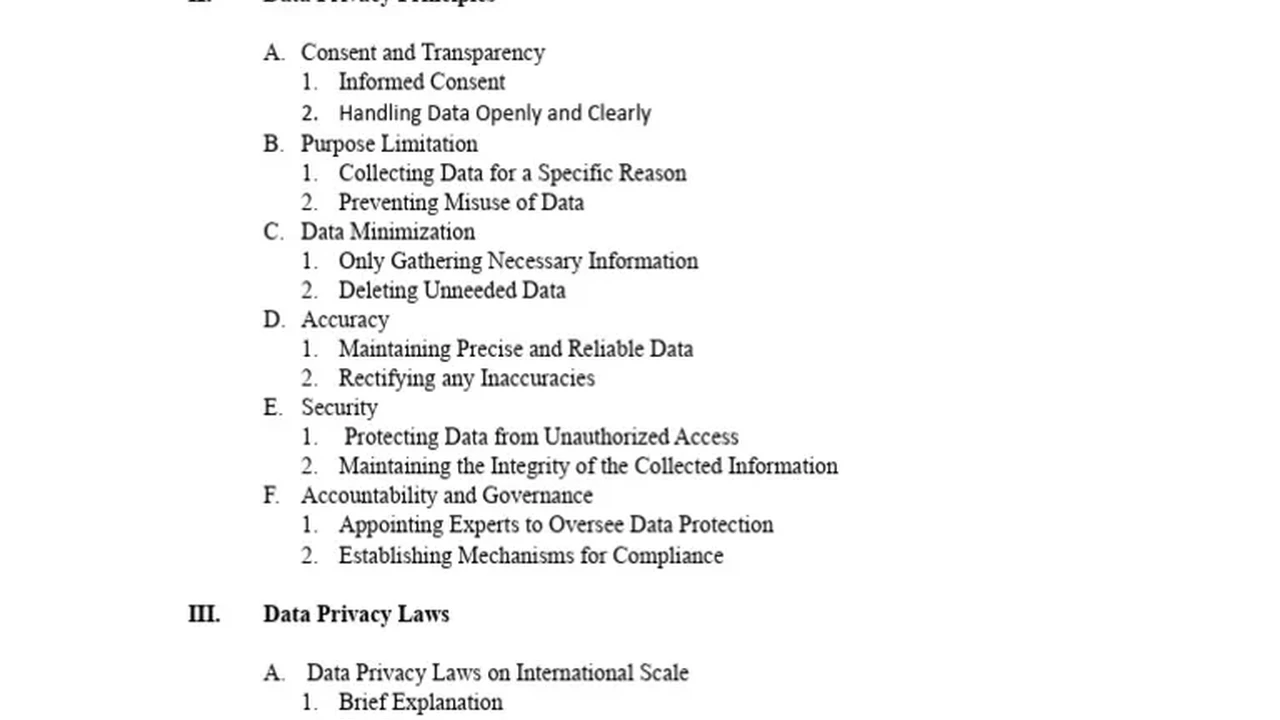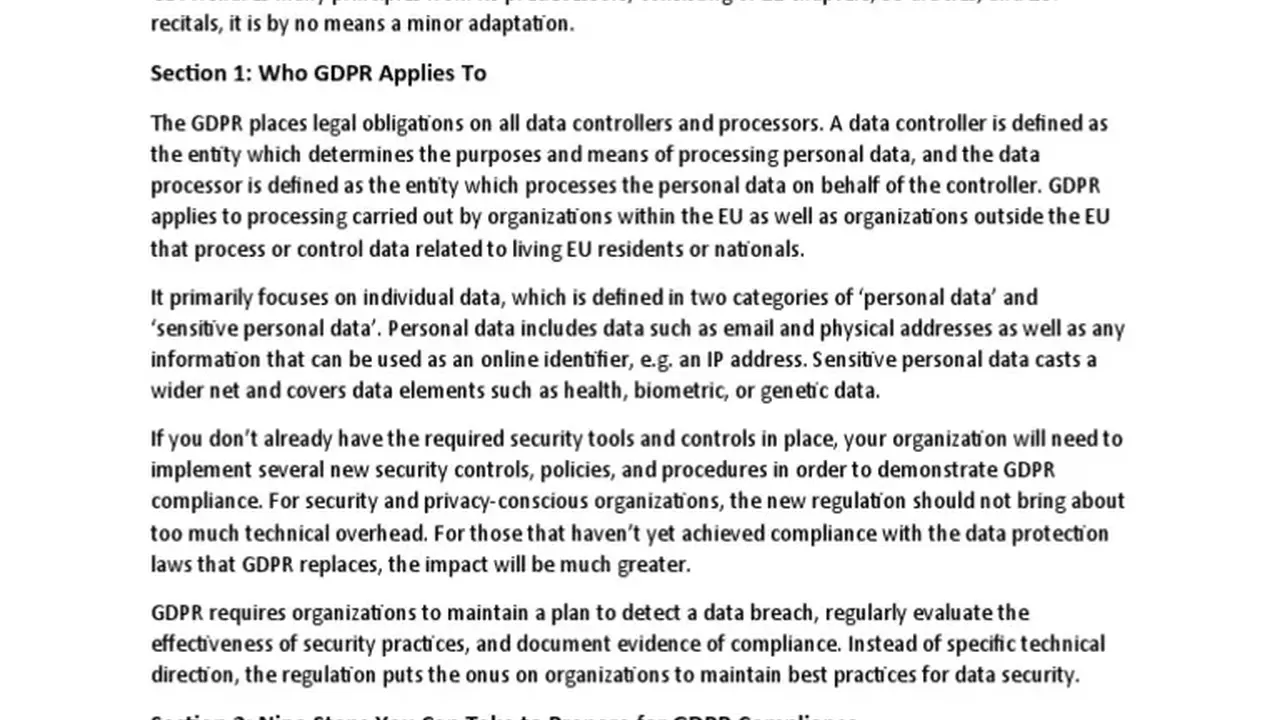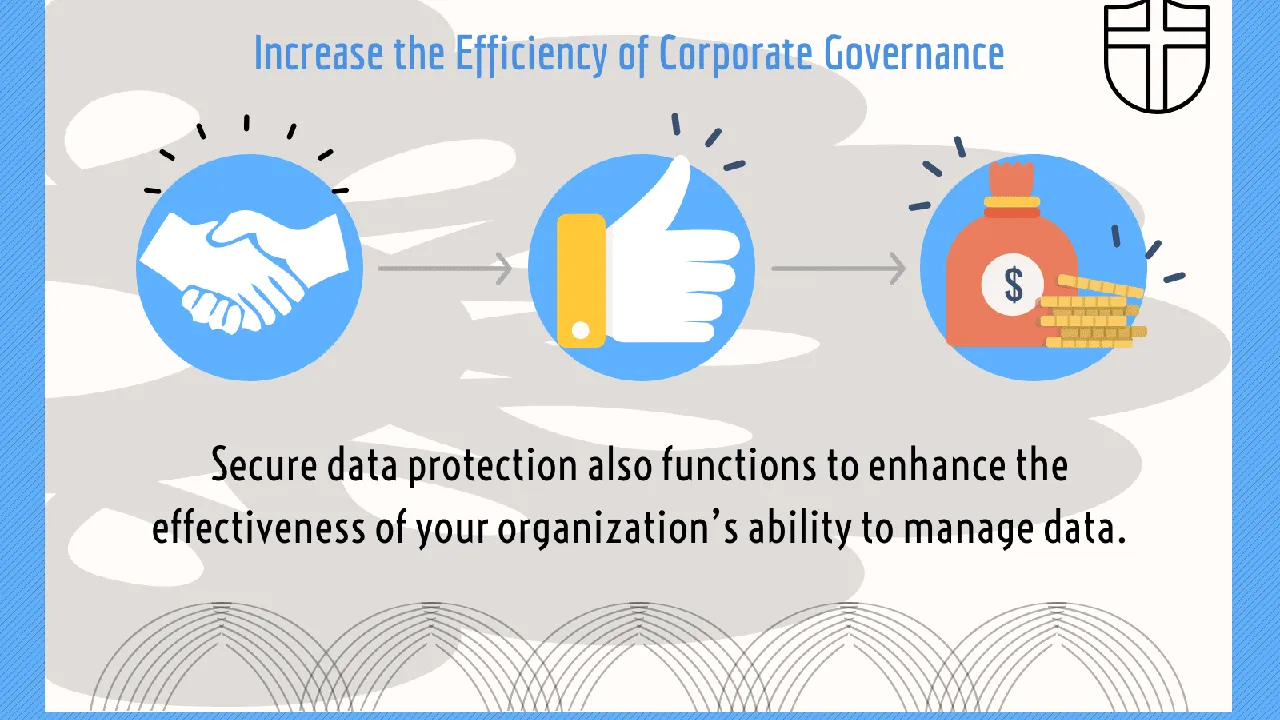7 Key Principles of Data Privacy and Their Importance
Explore the 7 key principles of data privacy including transparency, purpose limitation, data minimization, accuracy, storage limitation, integrity and confidentiality, and accountability.

Understanding Data Privacy Transparency
Transparency in data privacy means being upfront and honest with individuals about how you collect, use, and share their personal data. It's about providing clear and easily understandable information so people can make informed decisions about their data. Think of it as the golden rule of data privacy: treat people's data the way you'd want yours treated.
For example, your website's privacy policy should be written in plain language, not legal jargon. It should clearly explain what data you collect (e.g., name, email, browsing history), why you collect it (e.g., to personalize the user experience, send marketing emails), and with whom you share it (e.g., third-party analytics providers, advertising partners). Transparency builds trust, and trust is crucial for long-term customer relationships.
Purpose Limitation: Why You Need Data Privacy
Purpose limitation dictates that you should only collect and use personal data for specified, explicit, and legitimate purposes. In other words, don't collect data just because you *might* need it someday. Have a clear and defined reason for collecting each piece of information, and only use it for that reason.
Imagine you're running an online store. You need a customer's address to ship their order, that's a legitimate purpose. But asking for their marital status when it's irrelevant to the transaction would violate the purpose limitation principle. Stick to what's necessary and avoid collecting extraneous data.
Data Minimization: Less is More in Data Privacy
Data minimization goes hand-in-hand with purpose limitation. It means collecting only the minimum amount of personal data necessary to achieve your specified purpose. Don't hoard data unnecessarily. The less data you have, the less risk you face in case of a data breach.
For instance, if you need to verify a customer's age, you might only need their birthdate, not their full driver's license information. Think critically about what data is truly essential and avoid collecting anything superfluous. Regularly review your data collection practices and delete data that's no longer needed.
Data Accuracy: Keeping Data Privacy Up-to-Date
Data accuracy requires you to take reasonable steps to ensure that the personal data you hold is accurate, complete, and up-to-date. Inaccurate data can lead to unfair or discriminatory decisions, and it can erode trust with your customers.
Implement processes to allow individuals to access and correct their personal data. Regularly review and update your data to ensure its accuracy. For example, send periodic email reminders to customers to update their contact information. Invest in data validation tools to prevent the entry of inaccurate data in the first place.
Storage Limitation: Data Privacy Time Limits
Storage limitation dictates that you should only retain personal data for as long as necessary to fulfill the purposes for which it was collected. Don't keep data indefinitely. Establish retention periods for different types of data and securely delete it when it's no longer needed.
Consider legal and regulatory requirements when determining retention periods. For example, tax records might need to be retained for several years. But customer data collected for a marketing campaign might only need to be retained for a few months. Implement automated data deletion policies to ensure compliance with storage limitation principles.
Integrity and Confidentiality: Protecting Data Privacy from Threats
Integrity and confidentiality require you to protect personal data from unauthorized access, use, disclosure, alteration, or destruction. Implement appropriate technical and organizational measures to safeguard data against both internal and external threats. This includes things like strong passwords, access controls, encryption, and security awareness training for employees.
Regularly assess your security posture and implement security updates and patches. Conduct penetration testing to identify vulnerabilities. Consider using data loss prevention (DLP) tools to prevent sensitive data from leaving your organization's control. Choose a cloud provider that offers robust security features and complies with relevant data privacy regulations.
Accountability: Taking Responsibility for Data Privacy
Accountability is the cornerstone of data privacy. It means taking responsibility for complying with data privacy principles and demonstrating that you are doing so. This includes appointing a data protection officer (DPO), implementing a privacy program, conducting data protection impact assessments (DPIAs), and maintaining records of your data processing activities.
Be prepared to respond to data breaches and to cooperate with data protection authorities. Train your employees on data privacy principles and hold them accountable for their actions. Regularly review your data privacy practices and make improvements as needed. Transparency and accountability build trust and demonstrate your commitment to data privacy.
Data Privacy Product Recommendations and Comparisons
Implementing these data privacy principles often requires specific tools and technologies. Here are a few recommendations, along with their use cases, comparisons, and approximate pricing (keep in mind that pricing can vary significantly based on your specific needs and vendor negotiation):
Data Loss Prevention (DLP) Software
Use Case: Preventing sensitive data (e.g., credit card numbers, social security numbers) from leaving your organization's control. DLP software can monitor network traffic, endpoint devices, and cloud storage to detect and block unauthorized data transfers.
Products:
- Digital Guardian: Comprehensive DLP solution with advanced features like content-aware inspection and adaptive protection. Ideal for large enterprises with complex data security needs. Pricing: Custom quote, typically starts around $10,000 per year.
- Symantec DLP: Another leading DLP solution with strong capabilities for data discovery, monitoring, and protection. Suitable for organizations of all sizes. Pricing: Custom quote, varies based on modules and number of users.
- Endpoint Protector: A more affordable DLP option that focuses on endpoint protection. Easy to deploy and manage, making it a good choice for smaller businesses. Pricing: Starts around $100 per endpoint per year.
Comparison: Digital Guardian and Symantec DLP offer more advanced features and scalability but come at a higher price. Endpoint Protector is a more budget-friendly option that's easier to deploy and manage.
Data Encryption Software
Use Case: Protecting data at rest and in transit by converting it into an unreadable format. Encryption is essential for securing sensitive data stored on hard drives, in databases, or transmitted over networks.
Products:
- VeraCrypt: A free and open-source disk encryption software that's widely used for encrypting entire hard drives or individual files. Pricing: Free.
- BitLocker (Windows): A built-in disk encryption feature in Windows operating systems. Easy to use and provides strong encryption for entire volumes. Pricing: Included with Windows Pro and Enterprise editions.
- NordLocker: A user-friendly encryption solution for securing files in the cloud and on local devices. Offers end-to-end encryption and secure file sharing. Pricing: Starts around $3.99 per month.
Comparison: VeraCrypt and BitLocker are good options for encrypting entire hard drives, while NordLocker is a more convenient solution for encrypting individual files and folders, especially for cloud storage.
Privacy Management Platforms
Use Case: Automating and managing various aspects of data privacy compliance, such as consent management, data subject access requests (DSARs), and data mapping.
Products:
- OneTrust: A comprehensive privacy management platform that helps organizations comply with various data privacy regulations, including GDPR, CCPA, and others. Pricing: Custom quote, typically starts around $20,000 per year.
- TrustArc: Another leading privacy management platform with a wide range of features for data discovery, consent management, and risk assessment. Pricing: Custom quote, varies based on modules and number of users.
- Securiti.ai: A data-centric privacy management platform that uses AI to automate data discovery and compliance tasks. Pricing: Custom quote, varies based on features and data volume.
Comparison: OneTrust and TrustArc are more established platforms with a broader range of features, while Securiti.ai leverages AI to automate certain tasks and potentially reduce manual effort.
These are just a few examples of the many data privacy tools and technologies available. The best solution for your organization will depend on your specific needs, budget, and technical expertise. Always conduct thorough research and consider a free trial before making a purchase.
:max_bytes(150000):strip_icc()/277019-baked-pork-chops-with-cream-of-mushroom-soup-DDMFS-beauty-4x3-BG-7505-5762b731cf30447d9cbbbbbf387beafa.jpg)





